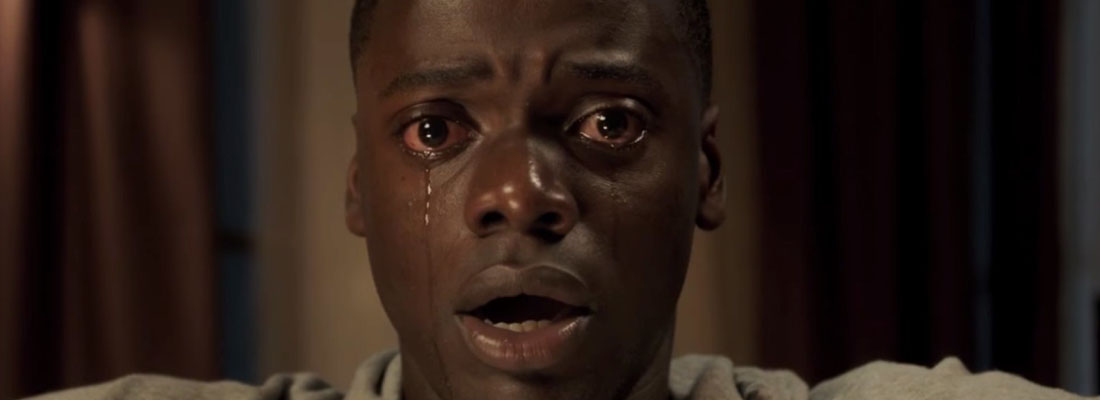Warning: Spoilers for Get Out
When I first saw the trailers for Get Out, I was expecting an enjoyable movie with good characterization and dialogue and probably an okay suspense film. However, I was completely blown away from the first moments of the film until the very end.
This film is exceptionally well done. Everything about it, from writing to acting to cinematography and everything in between, is impeccable. It’s easily one of the best (if not the best) film I’ve seen over the past year, and it is definitely one of my favorite suspense films of all time.
I found myself thinking a lot about Rose (Allison Williams) after the film. Good or bad, I felt that she was the perfect mirror to white allies. Rose is seemingly the ideal ally at the start of the film. She uses her privilege to confront a police officer attempting to harass Chris (Daniel Kaluuya). She also interacts with Chris and his friends with ease, presumably making no major missteps along the way. However, this starts to break down even before the film reveals her as one of the villains.
While Rose is perfectly willing to confront others in neutral territory, such as on the road to her parents house, once she actually arrives, things get more complicated. She warns Chris that her father has the best intentions when he inevitably tells Chris that he would have voted for Obama a third time if he could. It’s an awkward attempt at a compliment, but still fairly problematic in and of itself (this also happens later in the film when another character brings up Tiger Woods in an attempt to bond with Chris). Then, several scenes later, when Rose’s brother attempts to fight Chris and refers to his “genetic make-up” as an asset in fighting, she is silent. This happens again later during the party.
Rose does not participate in or encourage these events, but she also does nothing to stop them. She’ll exchange a sympathetic glance with Chris, but that is the extent of the allyship in these interactions. It isn’t like she’s oblivious to what is happening either. She will commiserate with Chris in private, but only in private. Even when she does this, she focuses on herself, telling Chris how much it hurts her that her family is this way. Here, where she has both privilege and connections, she is unwilling to rock the boat and “ruin” a party or dinner by bringing up the racist actions of others. Many allies struggle with this. They are willing to be supportive and confrontational as long as they don’t have to do it to the people closest to them.
That’s what makes Rose’s part in the film so perfect. She isn’t the one hypnotizing him or operating on him, but she is the one bringing into this world knowing he’s going to be exploited. She is a different type of person in her family home than she is with Chris. It’s part of what makes it so meaningful that she is the last one to die in the film. Her final act of using her white privilege to pin everything on Chris when she thinks the police are arriving juxtaposes so well with using her privilege with the police earlier in the film. It shows that allies have so much implicit power in these situations.
I cannot rave enough about how much I enjoyed Chris as a character. So often, protagonists in horror films are bland, even if they’re given a generic tragic past. Through Kaluuya’s phenomenal performance and Peele’s amazing writing, Chris really came to life. I was completely sucked into the film each time he was on screen. The audience, regardless of their own experience, is able to get into Chris’s shoes. One of the scariest moments in the film is at the end when the police car pulls up to Chris when he is strangling Rose. Of course, the audience finds out a moment later that it is actually Rod (LilRel Howery) that has come to the rescue. Regardless, you still feel pure terror and dread in that moment.
As a white person, I’ve never experienced these things. I see myself more in Rose (though I like to think I’m a better ally than that) than any other character in the film. Still, Get Out really made me see things from Chris’s perspective, and it did it with a lot of finesse. In other works I’ve seen, I’ve understood things better after the film or book or essay, but almost nothing else has put me in the shoes of Chris or any character like him before. So often films and books expect their audience to get into the shoes of a white character and live through a white experience. This is especially the case in horror films, where the protagonists of major films are often white women.
To change this formula already made this film appealing to me and many other audience members. And, on top of that, it’s probably one of the best executed horror/suspense films I’ve ever seen.

